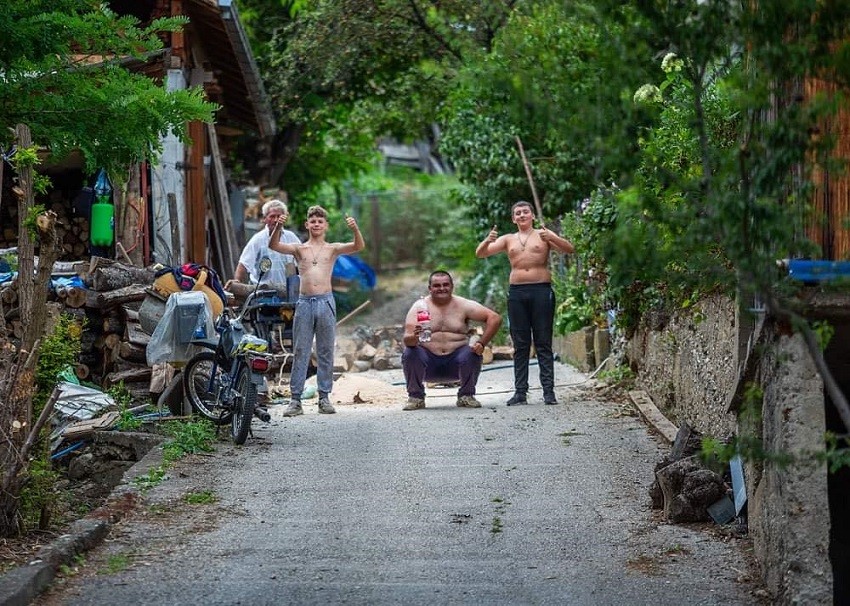 13
13
“People in Bosilegrad are polite, amiable, warm, especially when they found out we came from Bulgaria,” says photographer Vihren Georgiev. Together with three other photographers, he took part in a photography plein air, organized there with the help of the association GLAS, Bosilegrad. This being Vihren’s first time in the Western Outlands, he says he finds many similarities between the villages on the Bulgarian and on the Serbian side of the border.
“We went to a dozen villages and took photos, and what we, unfortunately, saw was that most of them were in a state of dilapidation, which is a sad thing because it is a reminder of the state small towns are villages in Bulgaria are in. We saw there was practically no life in the Bulgarian villages en route to the border, whereas Bosilegrad seemed more alive. There were very few people in the villages, and we saw lots of abandoned and dilapidated houses,” the photographer says and adds: “Many of them are used as summer homes, but interestingly, real estate is very cheap. You can buy a 3-storey house for EUR 15-18,000.”

Days before the plein air opened, the chairman of GLAS association organizing it Alexander Dimitrov was not allowed to enter Serbian territory because he was carrying Bulgarian books. The inexplicable reaction by the Serbian authorities was to be a main topic of discussion among the photographers. It also prompted Vihren to give expression to his support for him and for the things he has been doing for our compatriots in the Western Outlands through the years:
“I would like to say I was impressed by what Alexander Dimitrov is doing. Even though there are so few people left in the region, he has been trying to keep up a cultural programme, helping people not forget their origin. We talked a lot about the Easter Festival, part of which is the contest for the hardest egg. He has so many stories to tell,” says the photographer who only met Alexander Dimitrov this year, at the Rozhen Festival where Alexander had taken a group of children from Bosilegrad. 
Dimitrov told him about the problems Bulgarians in the region have been having for years - the depopulation of the area, their fears of openly stating their self-identity, the lack of jobs, and the pollution of the environment inflicted by the mines in the region:
“I don’t know whether the Serbian authorities are treating the people in the region badly, but the fact it has been abandoned economically speaks for itself,” the photographer says.
During his stay in Bosilegrad, Vihren witnessed a wedding which made a big impression on him:
“The interesting thing was that the tradition is for weddings to start at 6.30 in the morning, and there is singing and a brass band,” he says. “Which means everyone in Bosilegrad knows when there is a wedding going on. As is the tradition, and it is the same thing in some places in Bulgaria, the groom fetches the bride from her home. Interestingly, she then starts living with him and his family while they can decide not to invite her parents to the wedding.”

Translated and posted by Milena Daynova
Photos: Facebook/PeopleOfSofiq
Radmila Sekerinska from North Macedonia appointed NATO Deputy Secretary General NATO Secretary General Mark Rutte has appointed Radmila Sekerinska from North Macedonia as the next NATO Deputy Secretary General. “I am happy to announce..
The traditional Bulgarian Christmas picnic, organized by the Bulgarian Cultural and Social Association "Rodina - Sydney" and the Bulgarian School "Dr. Petar Beron", will take place on December 8 , 2024 in St. Leonards Park in Sydney. "We have..
The Bulgarian national minority in Albania is one of the largest in the country, according to data from the latest official population census. A total of 7,057 individuals identified as Bulgarians. For comparison, 23,000 people identified as Greeks,..
The Varna Regional Library "Pencho Slaveykov" has acquired a humanoid robot. It was unveiled by the library's director, Radka Kalcheva, during the..

+359 2 9336 661
